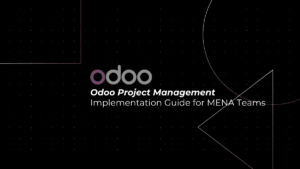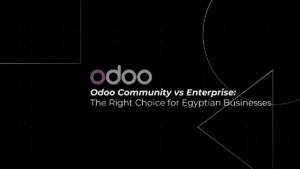Table of Contents
ToggleTable of Contents
Introduction
Digital Transformation Imperative
Zoho One: Comprehensive Solution
AI-Powered Integration Strategies
Technical Considerations
Real-World Impact
Conclusion
Introduction
In the rapidly evolving digital landscape, businesses are constantly searching for innovative solutions to streamline operations, enhance productivity, and maintain a competitive edge. Recent studies reveal that companies implementing comprehensive digital strategies can boost efficiency by up to 40%. At the heart of this transformation lies Zoho One – a revolutionary platform that represents the pinnacle of business process integration and digital transformation technology.
Digital Transformation Imperative
Digital transformation is no longer a mere buzzword – it’s a critical strategy for business survival. As technology continues to reshape industries, organizations must adapt quickly to stay relevant. The global digital transformation market is projected to grow exponentially, with AI-powered business applications playing a crucial role in this evolution.
Key Dimensions of Digital Transformation
- Technological Integration
- Process Automation
- AI-Driven Decision Making
- Seamless Ecosystem Connectivity
Zoho One: Comprehensive Solution
Zoho One emerges as a game-changing platform that addresses the complex needs of modern businesses. With integration capabilities spanning over 35 native applications and 200+ third-party tools, it creates a unified business ecosystem that tackles multiple operational challenges:
Comprehensive Integration Capabilities
CRM Integration: Seamless customer relationship management
Financial Management: Integrated accounting and financial tracking
HR Solutions: Comprehensive human resource management
Marketing Automation: AI-powered marketing insights
“Zoho One isn’t just software – it’s a complete business transformation platform.” – PyramidBITS Research Team
AI-Powered Integration Strategies
Modern businesses require intelligent systems that go beyond basic software integration. Zoho One delivers advanced capabilities that:
Predict business trends
Automate complex workflows
Provide real-time business intelligence
Enhance decision-making processes
Implementation Roadmap: 5 Steps to Digital Transformation
Assessment: Thoroughly evaluate current business processes
Integration Planning: Meticulously map out system connections
AI Workflow Design: Create intelligent automation pathways
Pilot Implementation: Test in controlled, strategic environments
Continuous Optimization: Conduct regular performance reviews
Technical Considerations and Security
Understanding the critical nature of business data, Zoho One prioritizes:
GDPR compliance
End-to-end encryption
Secure cloud infrastructure
Robust role-based access control
Technical Architecture Highlights
System Design
Microservices-based architecture
Cloud-native infrastructure
Scalable and flexible design
Security Framework
Multi-layer authentication
256-bit SSL encryption
Continuous security assessments
Real-World Impact: Transforming Business Operations
Businesses leveraging Zoho One experience:
Increased Efficiency: Reduced manual processes
Enhanced Collaboration: Unified communication channels
Data-Driven Insights: Real-time analytics and reporting
Scalable Solutions: Flexible platform that grows with your business
Quantifiable Benefits
| Area of Impact | Improvement Percentage |
| Operational Efficiency | 40-60% |
| Cost Reduction | 30-45% |
| Decision-Making Speed | 50-70% |
| Customer Satisfaction | 25-35% |
Investment and ROI Considerations
Pricing Model
Predictable subscription structure
Reduced software acquisition costs
Comprehensive suite of tools
Return on Investment
Faster time-to-market
Reduced operational complexity
Enhanced competitive positioning
Conclusion: The Future of Business Integration
Zoho One represents more than just a software solution – it’s a strategic approach to digital transformation. By unifying technologies, automating processes, and providing intelligent insights, it empowers businesses to navigate the complex digital landscape with confidence.
Unlock Your Business Potential
Book a Free Consultation
Download Digital Transformation Guide
Explore Zoho One Capabilities




